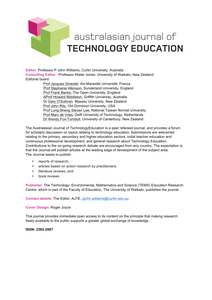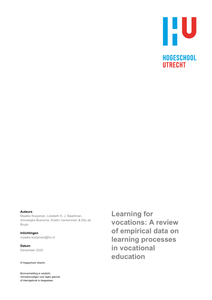This paper presents a mixed methods study in which 77 students and 3 teachers took part, that investigated the practice of Learning by Design (LBD). The study is part of a series of studies, funded by the Netherlands Organisation for Scientific Research (NWO), that aims to improve student learning, teaching skills and teacher training. LBD uses the context of design challenges to learn, among other things, science. Previous research showed that this approach to subject integration is quite successful but provides little profit regarding scientific concept learning. Perhaps, when the process of concept learning is better understood, LBD is a suitable method for integration. Through pre- and post-exams we measured, like others, a medium gain in the mastery of scientific concepts. Qualitative data revealed important focus-related issues that impede concept learning. As a result, mainly implicit learning of loose facts and incomplete concepts occurs. More transparency of the learning situation and a stronger focus on underlying concepts should make concept learning more explicit and coherent.
DOCUMENT

This paper presents a mixed methods study in which 21 first-year student teachers took part that investigated learning outcomes of a modified learning by design task. The study is part of a series of studies that aims to improve student learning, teaching skills and teacher training. Design-based science challenges are reasonably successful project-based approaches for breaking down the boundaries between traditional school subjects. Previous learning outcomes of the extensively studied Learning by Design (LBD) approach demonstrated a strong positive effect on students’ skills. However, compared to traditional classroom settings, LBD provided little or no profit on (scientific) concept learning. For this, according to two preliminary studies, a lack of explicit teaching and scaffolding strategies, both strongly teacher-dependent, bears a share of responsibility. The results of this third study indicate that more emphasis on these strategies indeed strengthens concept learning without reducing positive effects on skill performance.
DOCUMENT

Learning by Design (LBD) is a project-based inquiry approach for interdisciplinary teaching that uses design contexts to learn skills and conceptual knowledge. Research around the year 2000 showed that LBD students achieved high skill performances but disappointing conceptual learning gains. A series of exploratory studies, previous to the study in this paper, indicated how to enhance concept learning. Small-scale tested modifications, based on explicit teaching and scaffolding, were promising and revealed improved conceptual learning gains. The pretest-posttest design study discussed in this paper confirms this improvement quantitatively by comparing the conceptual learning gains for students exposed to the modified approach (n = 110) and traditional approach (n = 77). Further modifications, which resulted in a remodified approach tested with 127 students, show a further improvement through reduced fragmentation of the task and addressed science. Overall, the remodified approach (FITS model: Focus - Investigation - Technological design - Synergy) enriches technology education by stimulating an empirical and conceptual way of creating design solutions.
DOCUMENT

Computers are promising tools for providing educational experiences that meet individual learning needs. However, delivering this promise in practice is challenging, particularly when automated feedback is essential and the learning extends beyond using traditional methods such as writing and solving mathematics problems. We hypothesize that interactive knowledge representations can be deployed to address this challenge. Knowledge representations differ markedly from concept maps. Where the latter uses nodes (concepts) and arcs (links between concepts), a knowledge representation is based on an ontology that facilitates automated reasoning. By adjusting this reasoning towards interacting with learners for the benefit of learning, a new class of educational instruments emerges. In this contribution, we present three projects that use an interactive knowledge representation as their foundation. DynaLearn supports learners in acquiring system thinking skills. Minds-On helps learners to deepen their understanding of phenomena while performing experiments. Interactive Concept Cartoons engage learners in a science-based discussion about controversial topics. Each of these approaches has been developed iteratively in collaboration with teachers and tested in real classrooms, resulting in a suite of lessons available online. Evaluation studies involving pre-/post-tests and action-log data show that learners are easily capable of working with these educational instruments and that the instruments thus enable a semi-automated approach to constructive learning.
DOCUMENT

We present the Stargazing Live! program comprising a planetarium experience and supporting lesson activities for pre-university physics education. The mobile planetarium aims to inspire and motivate learners using real telescope data during the experience. Learners then consolidate their learning by creating conceptual models in the DynaLearn software. During development of the program, content experts and stakeholders were consulted. Three conceptual model lesson activities have been created: star properties, star states and the fusion-gravity balance. The present paper evaluates the planetarium experience plus the star properties lesson activity in nine grade 11 and 12 classes across three secondary schools in the Netherlands. Learners are very positive about the planetarium experience, but they are less able to link the topics in the planetarium to the curriculum. The conceptual modelling activity improves the learners understanding of the causal relationship between the various stellar properties. Future work includes classroom testing of the star states and fusion-gravity balance lessons.
DOCUMENT
From the article: "The educational domain is momentarily witnessing the emergence of learning analytics – a form of data analytics within educational institutes. Implementation of learning analytics tools, however, is not a trivial process. This research-in-progress focuses on the experimental implementation of a learning analytics tool in the virtual learning environment and educational processes of a case organization – a major Dutch university of applied sciences. The experiment is performed in two phases: the first phase led to insights in the dynamics associated with implementing such tool in a practical setting. The second – yet to be conducted – phase will provide insights in the use of pedagogical interventions based on learning analytics. In the first phase, several technical issues emerged, as well as the need to include more data (sources) in order to get a more complete picture of actual learning behavior. Moreover, self-selection bias is identified as a potential threat to future learning analytics endeavors when data collection and analysis requires learners to opt in."
DOCUMENT

Het plan van aanpak gepresenteerd in deze handreiking is bedoeld als leidraad voor het ontwerpen, ontwikkelen, implementeren en evalueren van verschillende Learning Communities binnen het RAAK-5 project Het Nieuwe Telen: gas erop! Het is bedoeld om zowel inzichten als instrumenten te bieden aan coördinatoren en facilitatoren voor de implementatie van de lokale Learning Communities gedurende het project. Deze handreiking is een noodzakelijke aanvulling op het project vanwege de prominente rol van Learning Communities binnen het project, maar ook omdat er geen wetenschappelijk gebaseerde ontwerpprincipes voor LC’s te vinden zijn. Er zijn veel projecten die Learning Communities uitvoeren, maar een grondige zoektocht naar literatuur en internetbronnen resulteerde niet in ontwerpprincipes.
DOCUMENT

Learning objects are bits of learning content. They may be reused 'as is' (simple reuse) or first be adapted to a learner's particular needs (flexible reuse). Reuse matters because it lowers the development costs of learning objects, flexible reuse matters because it allows one to address learners' needs in an affordable way. Flexible reuse is particularly important in the knowledge economy, where learners not only have very spefic demands but often also need to pay for their own further education. The technical problems to simple and flexible are rapidly being resolved in various learning technology standardisation bodies. This may suggest that a learning object economy, in which learning objects are freely exchanged, updated and adapted, is about to emerge. Such a belief, however, ignores the significant psychological, social and organizational barriers to reuse that still abound. An inventory of these problems is made and possible ways to overcome them are discussed.
DOCUMENT

This article reports on a literature review on empirical research investigating learning for vocations in the context of vocational education. We included 36 studies in which learning for vocations is empirically studied. Learning for vocations is characterised based upon prevalent research traditions in the field and framed from the perspective of vocational education and organised learning practices. This framing and characterisation directed the search terms for the review. Results show empirical data on vocational learning and illustrate how learning processes for the functions of vocational education - vocational identity development, development of a vocational repertoire of actions, and vocational knowledge development - actually take place. The review further shows that, empirical illustrations of learning processes that occur in the context of vocational education and organised learning practices are relatively scarce. The findings can be typified in relation to our theoretical framework in terms of three learning processes, that is learning as a process of (a) belonging, becoming, and being, (b) recontextualization, and (c) negotiation of meaning and sense-making. We argue that more empirical research should be carried out, using the functions of vocational education and the three learning processes to better understand vocational learning.
DOCUMENT

Voortdurende maatschappelijke veranderingen en uitdagingen vragen om samenwerking en een leven lang ontwikkelen. Vaak gebeurt dit in learning communities (innovatieve leerwerkomgevingen) waar organisaties grensoverstijgend samenwerken aan complexe vraagstukken. Bruggenbouwers (brokers) hebben een sleutelpositie in het ontwikkelen van deze learning communities om mensen en organisaties met elkaar te verbinden. Een veelzijdige rol die zich moeilijk laat definiëren. Bovendien voorzien organisaties niet altijd bewust in ondersteuning en ontwikkeling van deze bruggenbouwers. Op basis van een mixed-methodsbenadering voorziet dit onderzoek in de behoefte van een generieke rolbeschrijving met zeven vaardigheden. Hierbij wordt de invloed van kennis, ervaring en persoonskenmerken belicht. Bruggenbouwers werken intersectoraal over grenzen van organisaties heen en ondersteunen betrokken professionals en organisaties in hun samenwerking door politiek bewust en strategisch te handelen. Zij stimuleren kennisdeling en vertalen kennis naar diverse betrokkenen en contexten en onderzoeken daarbij de beroepspraktijk systematisch. Deze rolbeschrijving en de gewenste ondersteuning hierin biedt concrete handvatten om bruggenbouwers beter te selecteren, te waarderen en ook gerichter te investeren in hun professionele ontwikkeling. Deze investering is van cruciaal belang omwille van de katalyserende werking van de rol als bruggenbouwer om het voortdurend leren en ontwikkelen bij organisaties mogelijk te maken
DOCUMENT
